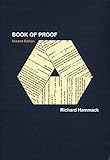I find it helpful to first learn the theory via 3blue1brown
https://www.youtube.com/channel/UCYO_jab_esuFRV4b17AJtAw
I'm currently working through the bookofproof math problems found here
https://www.amazon.com/Book-Proof-Richard-Hammack/dp/0989472...
It goes into how to actually write mathmatical proofs / discrete math which I believe is extremely important to any math branches and computer-science in general.
I was lucky to have a great foundational math background in highschool, my calc 1/2 teacher was considered one of the best in my state. I practiced at least 30 problems every night in that class for 2 years
"Mathematics for the Nonmathematician" https://www.amazon.com/Mathematics-Nonmathematician-Morris-K...
or
"Mathematics for the Million" https://www.amazon.com/Mathematics-Million-Master-Magic-Numb...
Of the two I prefered Kline's book but they are both good, albeit a bit heavy on geometery as that was a big focus of early math research.
Another great starting point is "Book of Proofs" and "Introduction to Mathematical Reasoning" to give you a deeper sense of how to approach the subject.
https://www.amazon.com/Book-Proof-Richard-Hammack/dp/0989472...
https://www.amazon.com/Introduction-Mathematical-Reasoning-N...
From there I went down this path (the order of which is up to you, each has tons of good source material):
-> Proofs/Logic
-> Algebra
-> Linear Algebra
-> Calculus
-> Abstract Algebra
-> Set Theory
-> Group Theory
-> Category Theory
-> Statistics/Probability
-> Discrete Mathematics
I never did well with learning math in a classroom but I've grown to love math through this process. There are lots of applications in programming as well. It makes approaching the deeper parts of Haskell/FP, data science, and machine learning much more accessible. I particularly liked the higher level Abstract Algebra stuff over the more grinding equations of calculus/linear algebra as it was more similar to programming.
It was still entirely relevant to today even though it was a few decades old as the fundamentals of computer science are still fundamental.
https://www.youtube.com/watch?v=2Op3QLzMgSY&list=PL8FE88AA54...
Hearing that intro music still brings a smile to my face.
I just happen to be relearning math right now as I dive deeper into data science and this is perfect timing. Going to watch this series once I get through my math proofs book ("Book of Proof" by Richard Hammack which I recommend to people getting into math https://www.amazon.com/Book-Proof-Richard-Hammack/dp/0989472...).
http://www.amazon.com/Book-Proof-Richard-Hammack/dp/09894721...
The other big stream of basic undergraduate mathematics is analysis. For that I recommend Spivak's Calculus.

